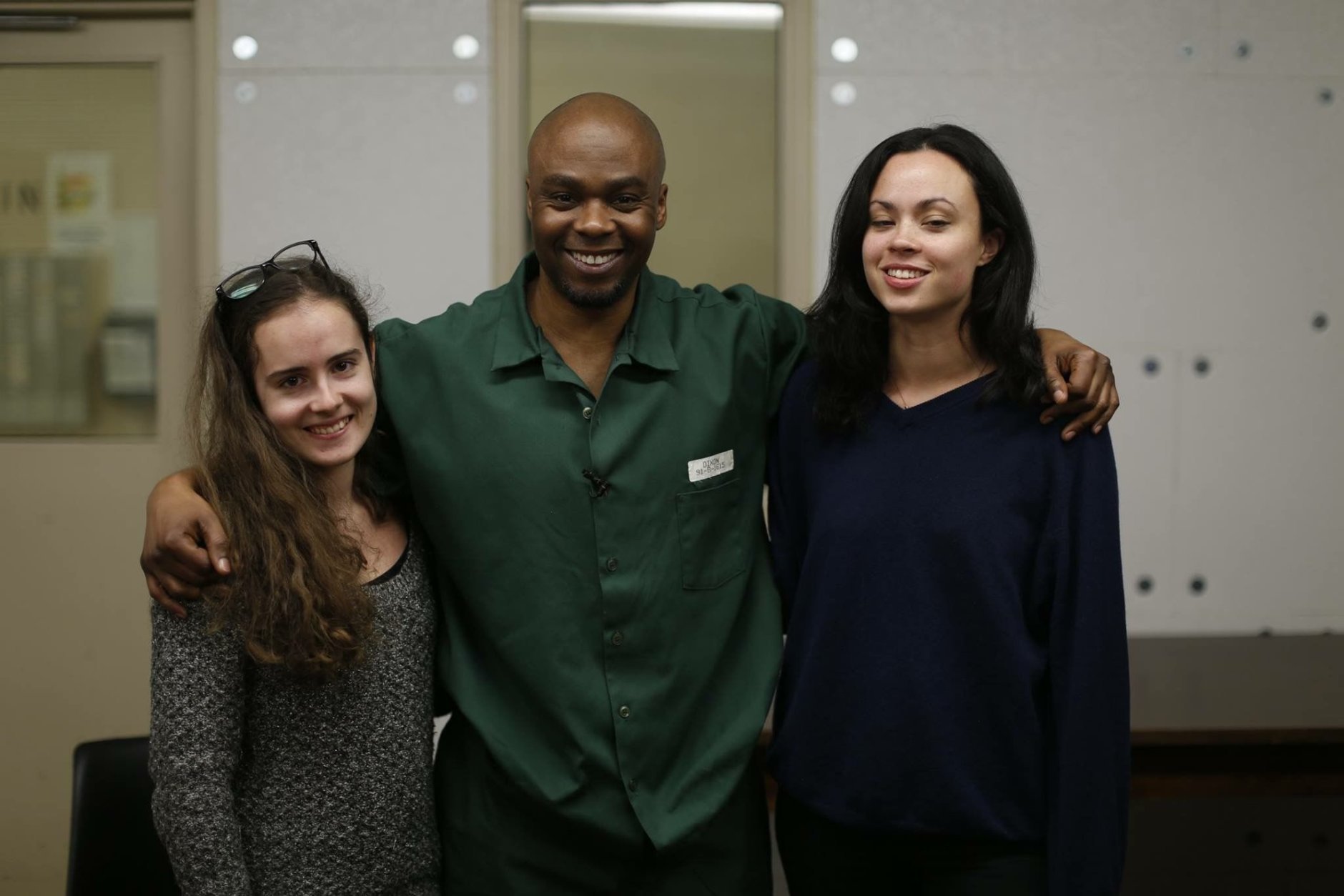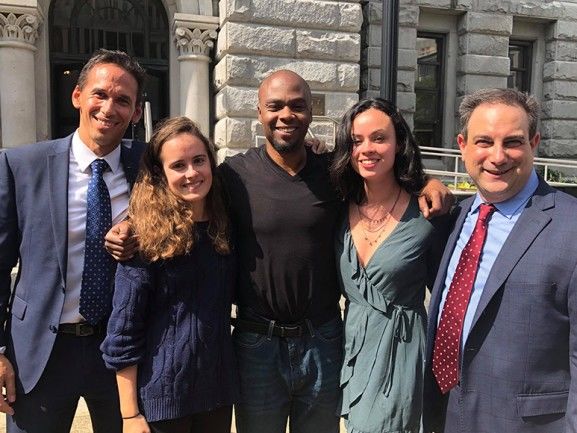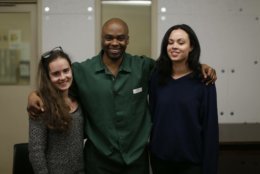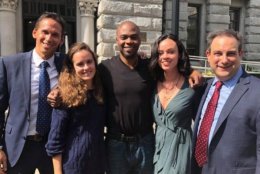



WASHINGTON — Valentino Dixon wanted to eat lobster for his first family dinner as a free man in more than a quarter-century.
“He decided he wanted to go to Red Lobster because he’s never been there,” said Georgetown University student Ellie Goonetillake, who helped get Dixon exonerated after serving 27 years in prison for a murder he didn’t commit.
Goonetillake and two classmates in a “Prison Reform Project” course — Julie Fragonas and Naoya Johnson — re-examined Dixon’s 1991 second-degree murder conviction in Erie County, New York.
The students discovered prosecutors never revealed to Dixon’s defense attorney that a gunpowder test on Dixon’s hands came back negative — a major violation in trial procedures.
After hours of work investigating and advocating in Dixon’s case, Fragonas wasn’t convinced he’d be exonerated until she saw it with her own eyes: “We watched the judge say the decision and then we saw Valentino come out of the courtroom.”
Dixon walked out of the courthouse Wednesday. He had been sentenced to 38 years in prison, despite another man repeatedly confessing to the murder.
Judge Susan Eagan let stand a count of criminal possession of a weapon against Dixon, and its 5- to 15-year sentence, which she said he had satisfied.
“You are eligible for release today,” the judge said, igniting applause and shouts from courtroom supporters.
“Mr. Dixon is not an innocent man. Don’t be misguided in that at all,” Erie County District Attorney John Flynn told reporters after the hearing. He described Dixon as “an up-and-coming drug dealer in the city of Buffalo” at the time of the shooting and said Scott was Dixon’s bodyguard.
“Mr. Dixon is innocent of the shooting and of the murder for what he was found guilty of,” he said, “but Mr. Dixon brought the gun to the fight. It was Mr. Dixon’s gun.”
“All of his family and friends are here,” said Goonetillake, stepping away from the Red Lobster party for a phone interview with WTOP. “It’s just a really happy atmosphere — everyone’s just so glad to be able to spend time with Valentino.”
Marc Howard, Georgetown University professor of government and law and director of the Prisons & Justice Initiative said his students “may not even realize yet that they saved a person’s life.”
“We’re celebrating and we’re thrilled and we love Valentino and we believe in him,” said Howard. “This is a real person’s life that was, in some ways, in (his students’) hands.”
The course is co-taught by adjunct professor Marty Tankleff, who was himself wrongfully imprisoned for almost 18 years in the deaths of his parents.
“I’ve been in Valentino’s shoes myself, and I know what gives you hope in the darkest moments is knowing that people are fighting for you, to expose the truth and to finally bring about justice,” Tankleff said.
Students in Howard and Tankleff’s course conducted investigations into four murder cases, and new cases are being studied for the upcoming semester.
“Sadly, there’s no shortage of wrongful conviction cases in the United States,” said Howard. “This is an epidemic — it’s a real problem.”
WTOP’s Kristi King and The Associated Press contributed to this report.
Editor’s note: This story has been updated to reflect Dixon’s convictions.








